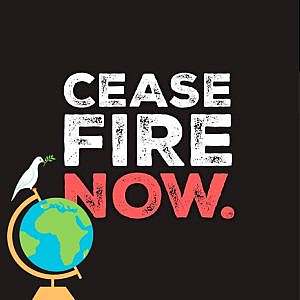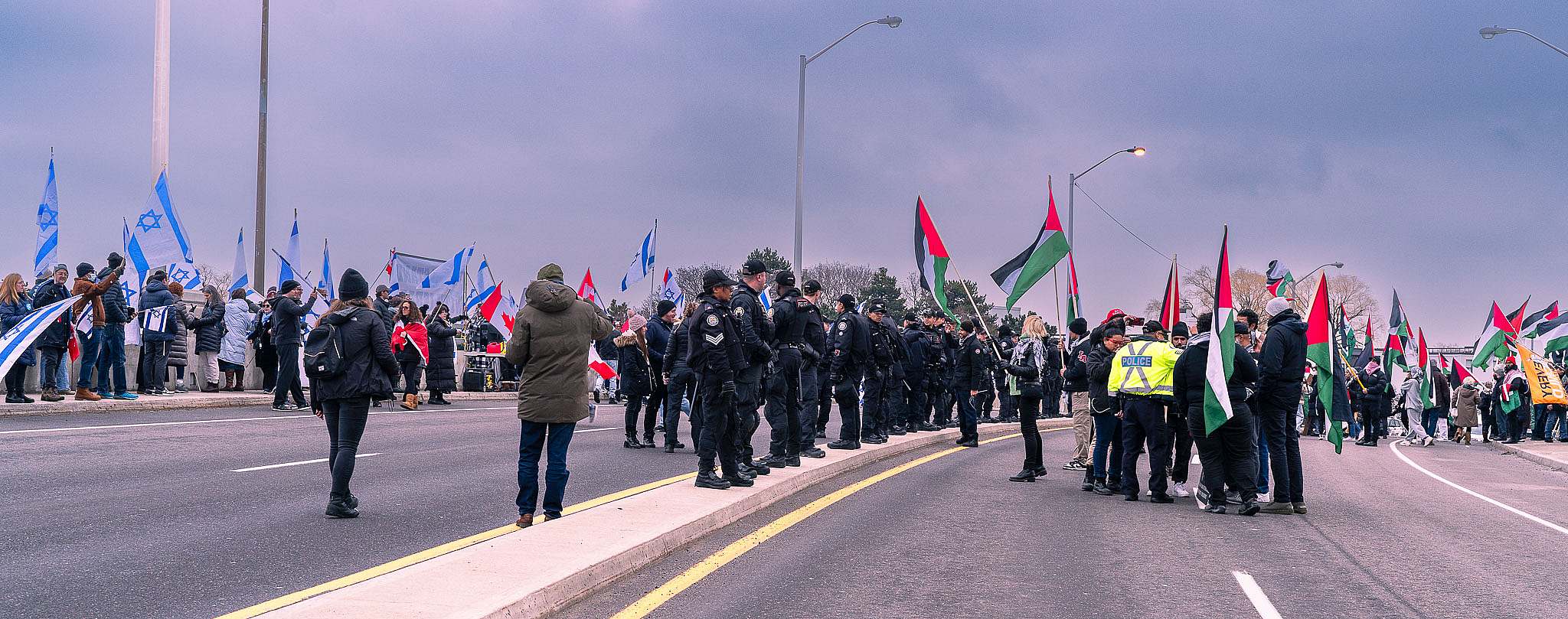Ceasefire, but don’t cease your activism
Ardavan Eizadirad
Asma Ahmed
Lucy Fowler
Dany Dias
Haley Clark
Melissa Daoust
Shaghayegh Bahrami
In the midst of conflict in the Middle East, as scholar-activists we advocate for and urge for a crucial pause—a ceasefire, not just in battles waged with weapons, but in the politicization of war between Israel and Palestine and the discourse that divides and wounds.
Every plea for a ceasefire is a testament to our unwavering dedication to justice—a commitment not to silence perspectives but to elevate them within a space that values inclusivity, respects differences, and nurtures the seeds of reconciliation. Reconciliation for whom and by whom? That is where the real discussion should take place involving complexities and nuances. This is not a binary discussion of good versus bad, innocent versus guilty, or self-defence versus terrorism.
Let’s be clear: supporting justice for Palestine doesn’t equate to hostility towards Israel or being anti-Jewish. Just as being pro-Palestine does not mean you support Hamas. It is a call for fairness and dignity from a humanitarian lens and a plea for empathy across borders, races, cultures, and ethnicities. It is to value human lives on both sides of the conflict but recognize unequal power relations at stake, and what is required to resolve the conflict from a sustainable lens where more innocent human lives are not lost, including many children, seen as collateral damage. The killing of civilians or terrorizing them is unequivocally wrong regardless of who it is committed by.
In the spirit of scholar activism, we call for and support a ceasefire—an urgent call for an end to all forms of violence and a symphony for peace. Scholar activism demands engagement, not merely in rhetoric, but in the genuine pursuit of peace. It beckons us to navigate through the labyrinth of conflicting viewpoints, steering the discourse toward pathways of mutual understanding and shared humanity. The purpose is to address the factors that have historically contributed to this conflict involving settler colonialism, displacement, politicization of war, and surveillance, which started prior to October 7, 2023.
So, let’s avoid the sanitization of the pain and suffering and desensitization to lost lives at a distance, associated with political arguments of why such acts of violence are justified. They are NOT justified, and must stop! What would you do if it was your own family at stake?
Ceasefire from a social justice and decolonial lens is not just a temporary respite; it’s a pivotal moment for introspection, for acknowledging the wounds inflicted, and for forging pathways toward healing and reconciliation. It is an acknowledgment that violence perpetrated by any side fractures the very fabric of our shared existence. Embracing allyship and intersectionality, we beckon all voices, inviting the harmonization of divergent perspectives within a space that honors opposing views, with the goal of recognizing that no innocent lives lost should be justified as collateral damage before, during, or after acts of war, terrorism, and/or bombings. Everyone deserves basic human rights. It is within this inclusive realm and a humanitarian lens that a healthy and open dialogue flourishes, fostering understanding amidst differences.
Solidarity should not be confined to one narrative but rather encompass intricate web of intersecting experiences and identities. It is imperative to recognize that the magnitude of suffering is not always equal. Who controls the narrative? Who has more power and resources?
No lives are being dismissed by exploring such questions. It is a recognition that examines who has control over what means, to resolve the issues at hand, and what strategies are being taken to serve what purpose. This is what it means to engage meaningfully in exploring the on-gong conflict and perspectives from each side, even when tensions are high and personal emotions are invested in the process.
May this call for a ceasefire serve as an emblem of our collective yearning for peace and justice—a testament to our commitment to build a world and nations where differences coexist without conflict and where the pursuit of justice unites us in a shared journey toward a brighter tomorrow. This translates into not being afraid to take a stance that is unpopular. Mere words are not enough. It is in our actions, in the choices we make daily, where solidarity truly resides. When innocent lives are at stake, silence becomes complicity. We cannot turn away from the human toll exacted by political strife. Standing up for human dignity is not an option. It is a fundamental right and crucial responsibility. The historical roots of this conflict, entrenched in displacement and colonialism, must be acknowledged to understand its present toll and implications for Israel, Palestine, and others around the world.
Dialogue is our sanctuary. It is where understanding takes root, and bridges are built. It is where empathy grows and misconceptions and stereotypes wither. For academics and the wider public, this plea is not passive. It is a call to be active agents of change. They are promises to create conditions where humanity thrives and basic rights are not negotiated but guaranteed. For it is within the sanctum of discourse that misconceptions unravel and the seeds of empathy sprout to bloom in the fertile soil of shared humanity.
Let this ceasefire be not just a fleeting interlude but a steadfast commitment—a covenant of hearts beating in unison, hands clasped in solidarity, and minds and spirits attuned to the symphony of justice. Let’s all begin in our local communities in taking a stance and making a change with our actions towards peace.

#FreePalestine #StopTheWar #NoToTerrorism #CeaseFire #Peace&Unity
The authors are professors and graduate students from 7 different institutions across Canada:
Dr. Ardavan Eizadirad, Assistant Professor, Wilfrid Laurier University
Dr. Asma Ahmed, Assistant Professor, Niagara University- Ontario
Dr. Lucy Fowler, Assistant Professor, University of Manitoba
Dr. Dany Dias, Assistant Professor, Université de l’Ontario Français
Haley Clark, PhD Candidate, Queen’s University
Melissa Daoust, PhD Candidate, University of Ottawa
Shaghayegh Bahrami, PhD Candidate, Simon Fraser University

